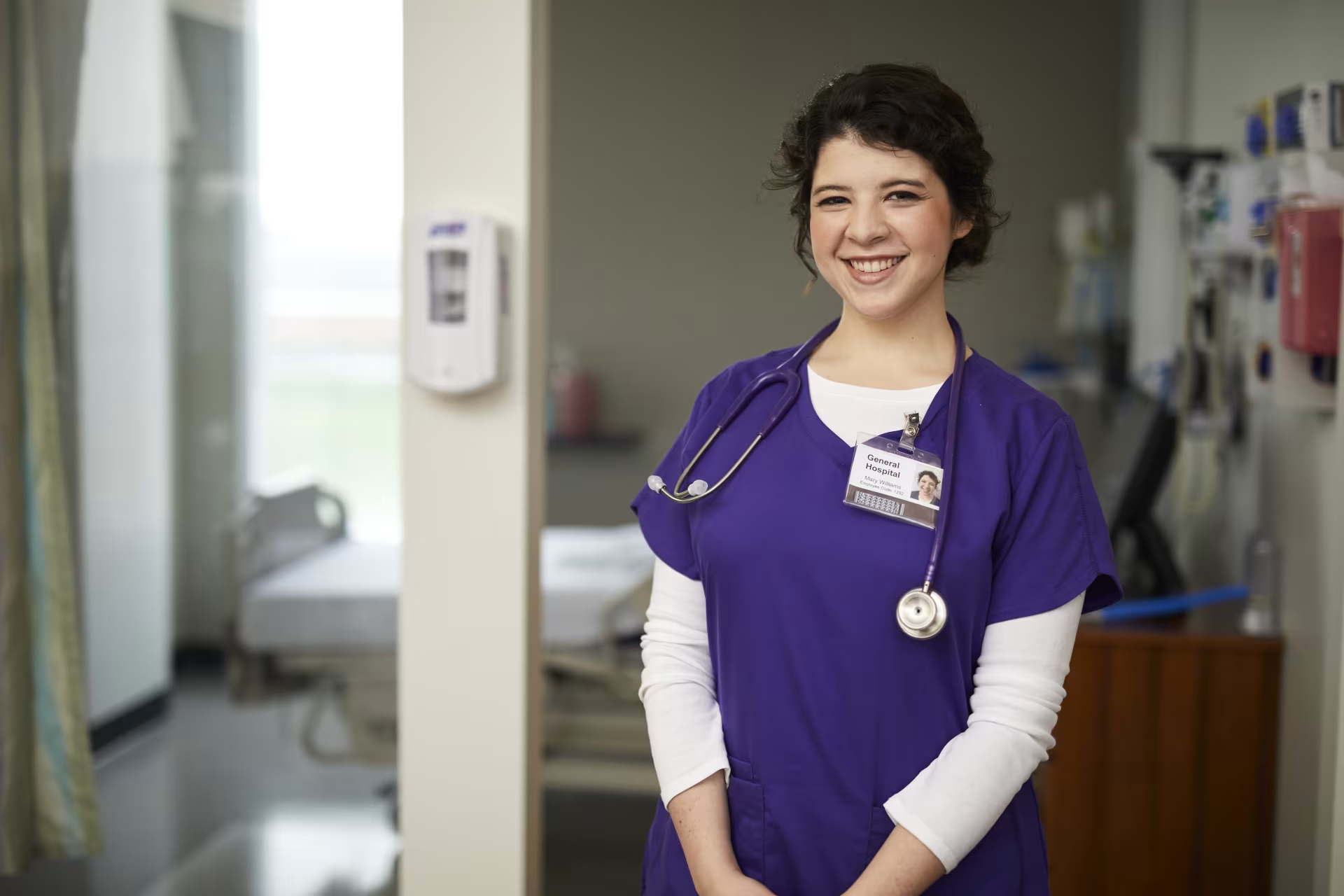
GCU’s Accelerated Nursing Programs in Missouri
16-Month ABSN Nursing School in Missouri1
Prepare to become a nurse by completing your accelerated BSN program in Missouri from GCU. Our ABSN program will teach you core nursing foundations, while preparing you for in-person interactions with patients through skills labs, immersive simulations and clinical rotations. This full-time nursing option is set up so you can complete your BSN degree in an accelerated manner.
Several aspects of our program are specifically designed to help you achieve this, such as:
Three start dates throughout the year
Online nursing coursework(See disclaimer 2)
Convenient St. Louis learning location
Why Choose GCU for Your ABSN Program in Missouri?
You can look forward to immersing yourself in your studies while completing your accelerated nursing program. The ABSN program from GCU offers:
Our accelerated nursing program can prepare you for the National Council Licensure Examination (NCLEX-RN®), the standard test to become a registered professional nurse. Earn your BSN degree in 16 months,(See disclaimer 1) and feel confident entering the nursing workforce after graduation.
In May 2021, nurses in Missouri had a median annual salary of $71,460, according to the U.S. Bureau of Labor Statistics.(See disclaimer 3 )
Admission Process for GCU’s Accelerated BSN Programs in Missouri
To gain admittance into GCU’s ABSN program, you must fulfill certain educational requirements, as well as complete required pre-requisite courses. ABSN requirements may vary by state and location. For specific information on accelerated nursing program requirements, fill out the form on this page to get in contact with a university counselor.
Applicants for the GCU’s Bachelor of Science in Nursing: Pre-Licensure, accelerated (ABSN) program at the St. Louis location are advised to review Section 335.066 of the Missouri Nurse Practice Act. Completion of the program does not guarantee eligibility to take the licensure examination.
GCU’s Bachelor of Science in Nursing: Pre-Licensure, accelerated (ABSN) program has received initial program approval from the Missouri Board of Nursing.
Missouri ABSN Learning Sites
Learn more about our accelerated BSN learning site in Missouri and start planning your nursing education today. View our Postsecondary State Authorizations and SARA and State Disclosures information for Missouri.
Earn Your ABSN From an Accredited University
GCU is an institutionally accredited university that offers nursing programs which meet high learning standards.(See disclaimer 4) This 16-month accelerated nursing program is designed to educate aspiring nurses in a timely manner,(See disclaimer 1) while also embracing a Christian worldview.

If you’re ready to advance your nursing career in Missouri, request more information.
- Secondary Applicants must transfer a minimum of 60 of the required 123 credits or have completed a baccalaureate degree which includes nine prerequisite courses/labs and 10 general education courses prior to starting the core nursing courses, which can be completed in as few as 16 months. Direct Entry Applicants that do not transfer 60 credits but meet the minimum requirements can complete these credits through GCU prior to starting the core nursing courses. Depending on the state where student has enrolled or intends to complete the program, student may require additional courses. This may include, but is not limited to, additional general education courses, courses in the major, clinical courses, or a different course sequence. See University Policy Handbook.
-
Clinical, practicum and immersion hours completed locally.
- The earnings referenced were reported by the U.S. Bureau of Labor Statistics (“BLS”), Registered Nurses, as of May 2021, retrieved on May 23, 2023. Due to COVID-19, data from 2020 and 2021 may be atypical compared to prior years. The pandemic may also impact the predicted future workforce outcomes indicated by the BLS. BLS calculates the median using salaries of workers from across the country with varying levels of education and experience and does not reflect the earnings of GCU graduates as registered nurses. It does not reflect earnings of workers in one city or region of the country. It also does not reflect a typical entry-level salary. Median income is the statistical midpoint for the range of salaries in a specific occupation. It represents what you would earn if you were paid more money than half the workers in an occupation, and less than half the workers in an occupation. It may give you a basis to estimate what you might earn at some point if you enter this career. You may also wish to compare median salaries if you are considering more than one career path. Grand Canyon University can make no guarantees on individual graduates’ salaries as the employer the graduate chooses to apply to, and accept employment from, determines salary not only based on education, but also individual characteristics and skills and fit to that organization (among other categories) against a pool of candidates.
- For more information on the accreditation of nursing programs and other university approvals, please visit our University Accreditation and Regulations page.


